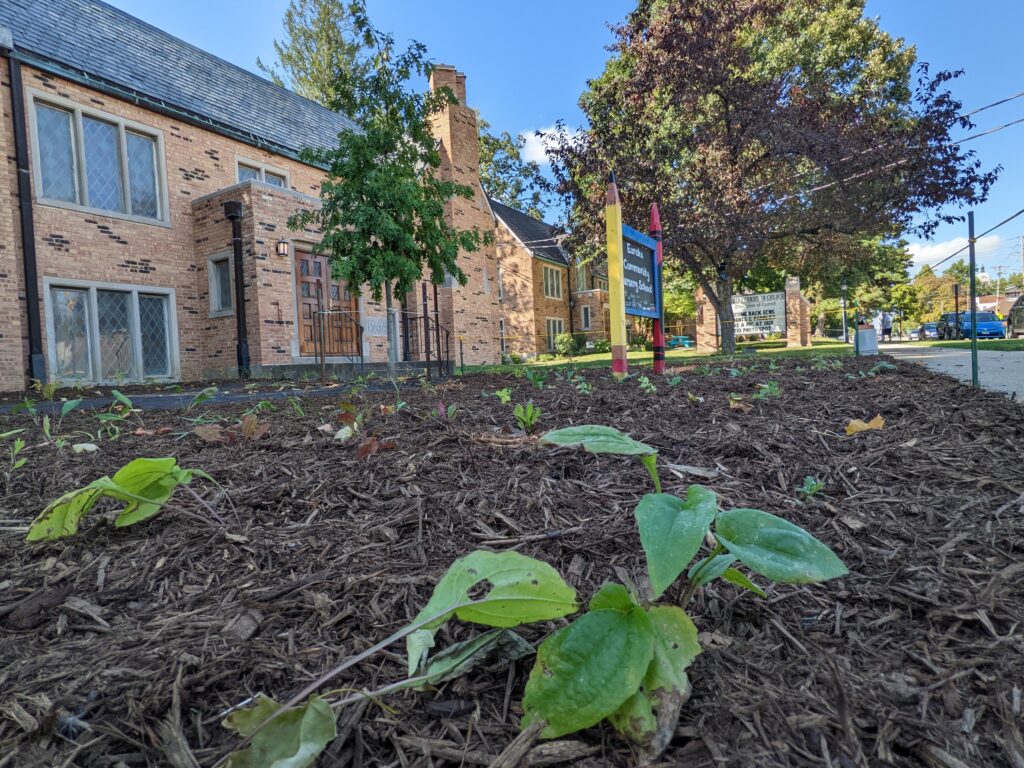Be a Gardener. Dig a ditch. Toil and sweat. Turn the earth upside down.
Seek the deepness. And water plants in time. Continue this labor.
Make sweet floods to run, and noble and abundant fruits to spring.
Take this food and drink, and carry it to God as your true worship.
Julian of Norwich
In partnership with the Environmental Studies and Sustainability Program at Eureka College, Eureka Christian Church planted a pollinator garden. What is a pollinator garden, you ask?
A pollinator garden is designed to contain plants that provide food and shelter to animals (bees, birds, butterflies, moths, etc.) that pollinate plants to support the local ecosystem and food web. Pollinator gardens are often made up of native plants. Why do pollinator gardens matter? Pollinators—i.e., animals that move pollen from one flower to another—are in decline. Pollinator decline is attributed primarily to the loss of habitat and to the use of pesticides. Urbanization is occurring at an alarming rate, our green space is disappearing, and we are in a pollinator crisis. Creating an interconnected web of pollinator gardens is a goal vital to restoring balance to our ecosystem. (“What to Know About Pollinator Gardens” by Les Engles, www.thespruce.com, posted February 28, 2022.)
At Eureka Christian Church, we consider it part of our sacred obligation to do our part in restoring the balance to our ecosystem, God’s good earth. That is why we wanted to be part of the pollinator garden movement. Our garden includes over 300 native perennials, including: milkweed, coneflowers, goldenrod, black-eyed Susans, asters, wild geraniums, and more.
Come by and watch them bloom!


